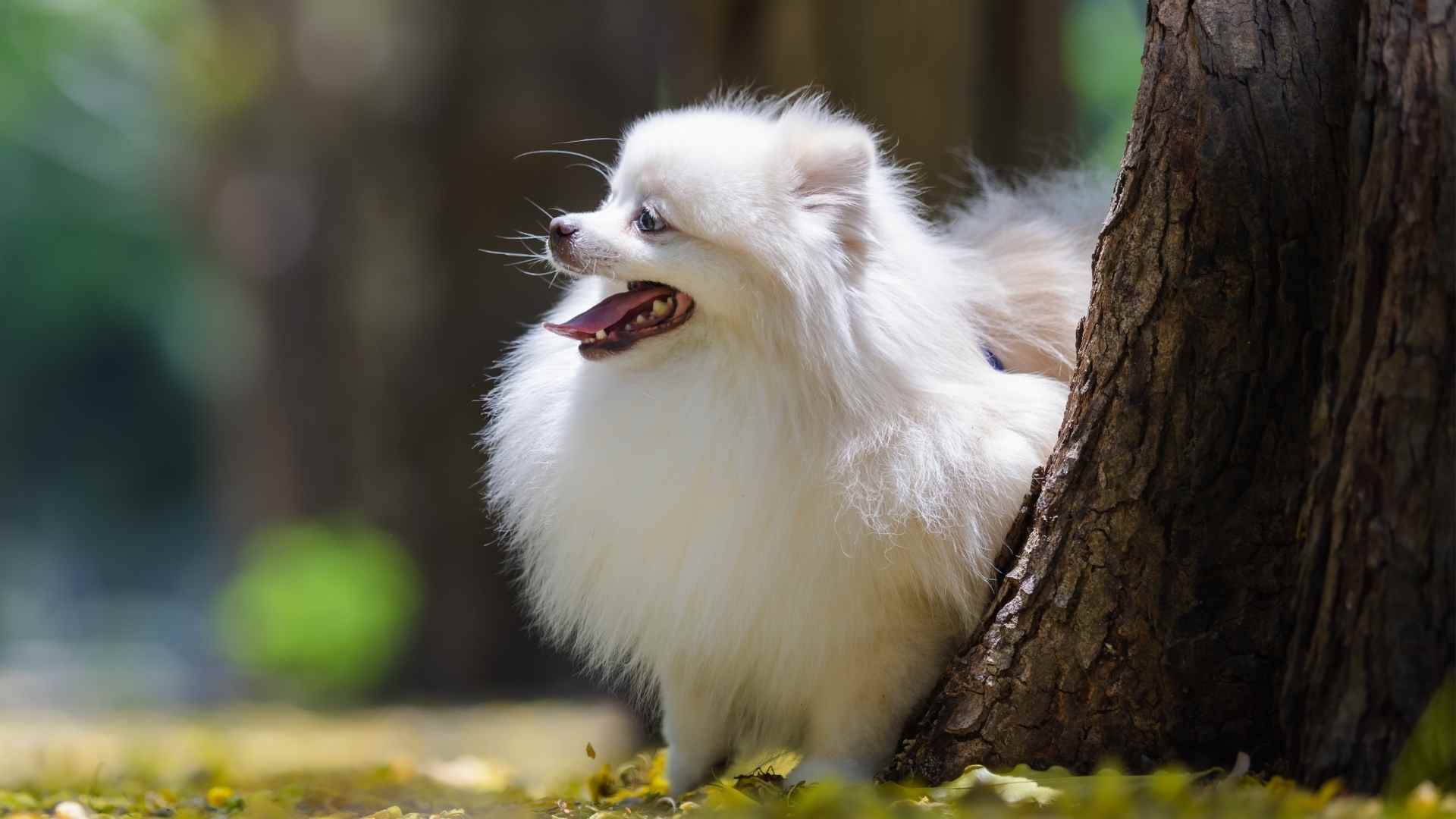Although it sounds unrealistic, it’s true that little dogs can have the biggest voices. You know, those tiny paws that sound like they could take on the world with just a bark? Well, there’s a group of pint-sized pups that love to make their presence known, no matter their size. Their barks might be loud, but it’s all part of their charm!
These mini barkers have big personalities packed into small frames, and while they might be small, their vocal cords are anything but. Whether they’re alerting you to every passing squirrel or just chatting to their toys, you can count on them to make themselves heard.
What makes these dogs so fascinating isn’t just their size but their unwavering confidence. Their bark? It’s their way of saying, “I’m here, and I’m ready to protect my family!” If you’re into big characters in tiny packages, these dogs might just steal your heart—and your attention. Let’s dive in!
Barking Micro Dog Breeds
1. Chihuahua

When you think of a Chihuahua, what comes to mind? Tiny, yes, but don’t let that size fool you—these little dogs have a bark that’s louder than their stature suggests. Known for their feisty personalities, they can often be found making their presence known with sharp, attention-grabbing barks.
Chihuahuas are incredibly alert, always on the lookout for anything they deem unusual. Whether it’s a stranger at the door or a change in the wind, you can bet they’ll let you know about it. That high-pitched bark they love to use is their way of saying, “I’ve got this, don’t worry!” It’s what makes them exceptional little watchdogs.
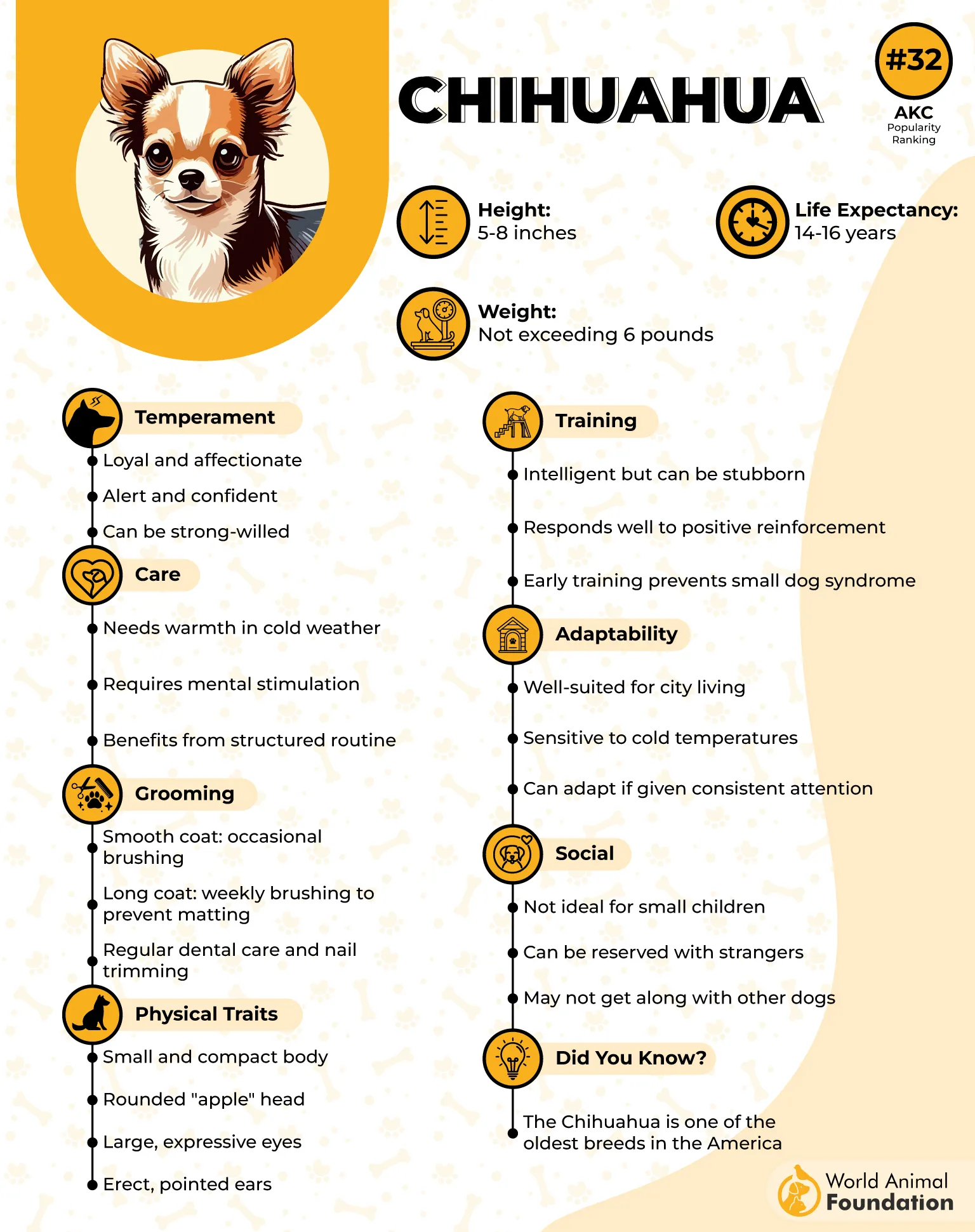
But why do they bark so much? According to PDSA, the Chihuahua has an energetic and alert nature and protective instincts that often lead to excessive barking. They tend to be very territorial and will sound off to protect their space. This can be charming in small doses, but be prepared for a noisy home if you choose one of these energetic pups!
Their size doesn’t diminish their energy levels. Chihuahuas are often seen bouncing around the house, excited to explore, and then barking up a storm when something piques their interest. The energy they carry in such a small frame is truly impressive. They’re not shy about expressing themselves, especially when it comes to getting attention or protecting their family.

Training can help curb their barking, but it’s important to remember that their instinct is always to alert you to anything unusual. Early socialization and positive reinforcement are key to managing their vocal tendencies.
2. Yorkshire Terrier

These little fluffballs are known for their confident and bold nature, and their bark is no exception. With their alertness and spunky attitude, Yorkies love to make their voices heard. While they may be small enough to fit in your handbag, their bark can rival that of much larger dogs.
You may be asking, “Do all Yorkies bark this much?” Well, yes and no. While barking is a typical trait of the breed, it’s important to note that every dog is different. Yorkies can sometimes bark more if they’re feeling anxious or bored, so providing them with enough mental stimulation and exercise can help keep their barking under control. But even with training, don’t expect them to become quiet.
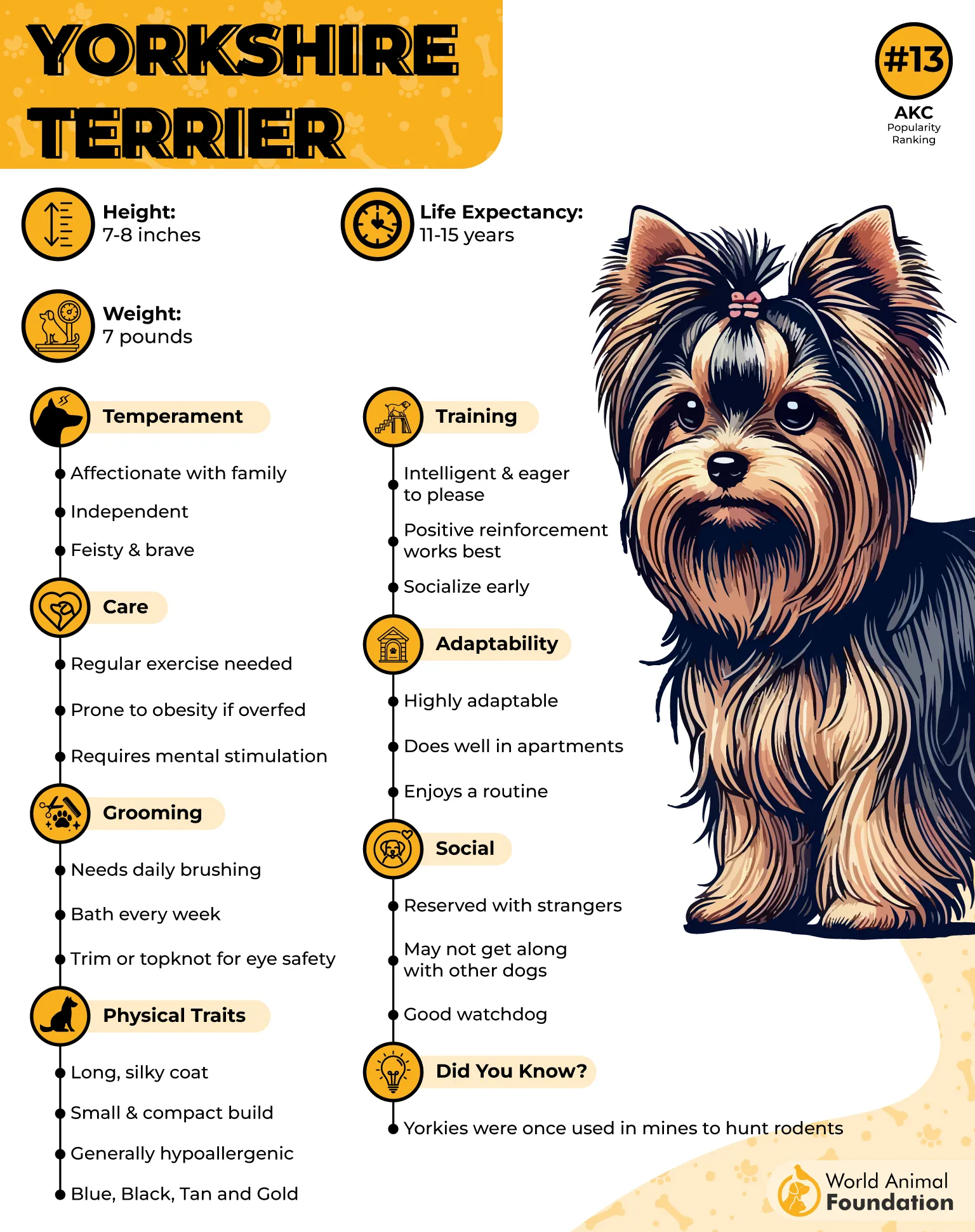
Their bold nature also makes them natural guard dogs. Despite their small size, Yorkies are incredibly protective and will defend their home fiercely. This often leads to their barking at anything that seems out of place. Their confidence in their own abilities is admirable. They might weigh only a few pounds, but they’re always ready to take on anything that might challenge their turf.
In fact, their barking isn’t just a response to strangers; they’re also known to bark for attention. If they feel like they’re not getting enough love or playtime, you can count on them to vocalize their need for some interaction. This dog constantly demands attention.
A quick tip: Yorkies are intelligent and respond well to training, so with patience and consistency, you can teach them when to bark and when to stay quiet. Positive reinforcement, like treats and praise, works wonders in getting them to understand the difference between a casual bark and an “alarm bark.”
3. Pembroke Welsh Corgi

Often associated with royalty, these adorable dogs have a knack for making their presence known with their distinctive, loud bark. Whether they’re alerting you to an intruder or just letting you know they’re around, their bark is strong and full of enthusiasm. But what makes Corgis such vocal creatures? Their natural instinct to herd and protect is deeply embedded in their DNA.
With their short legs and big personalities, Corgis are confident little dogs who love to engage with their surroundings. Their bark isn’t just about guarding; they use it to get attention, show excitement, or express their curiosity. They’re known to be quite talkative, making them the life of the party at times!
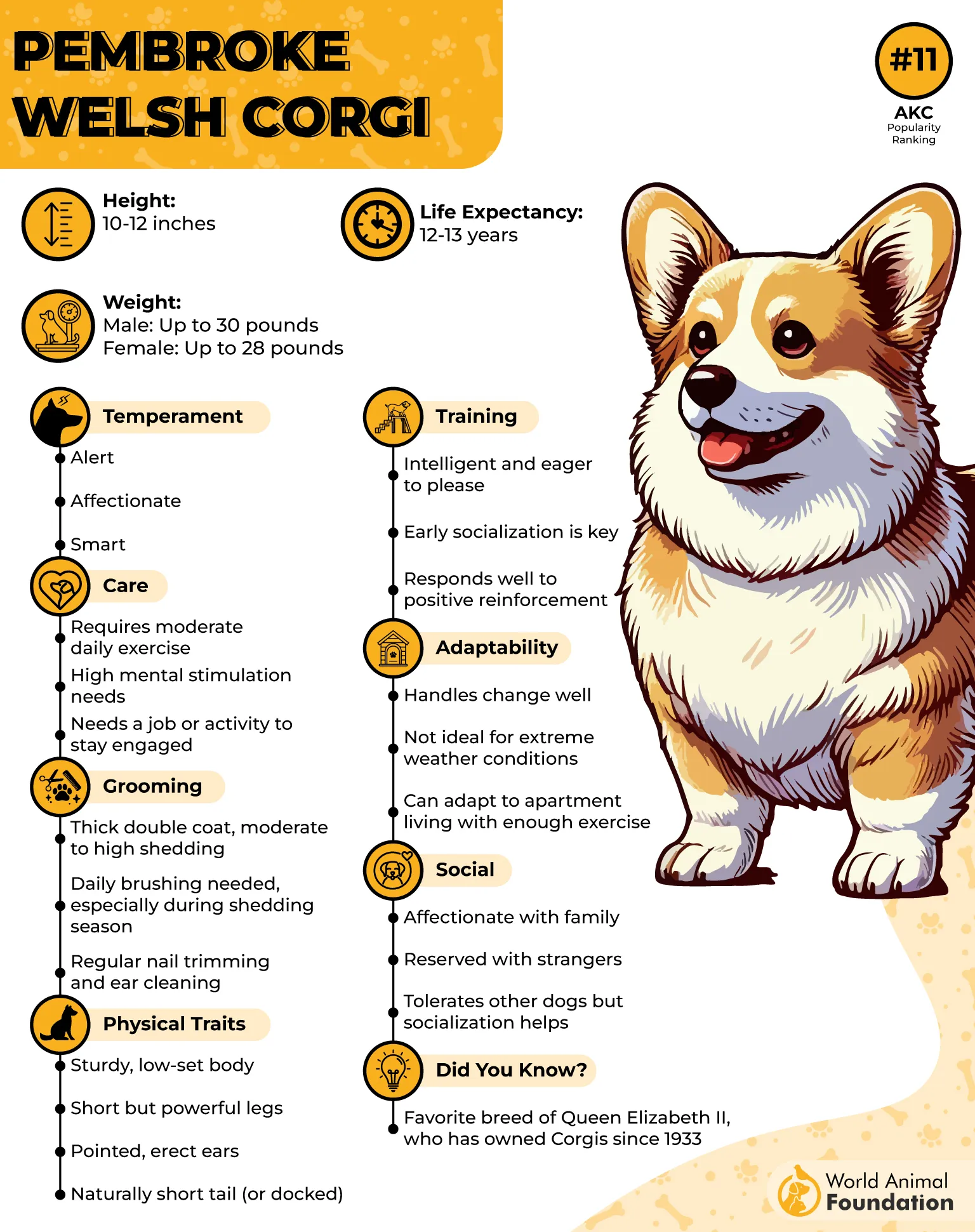
But Pembroke Welsh Corgis don’t just bark for the sake of it; they are highly intelligent and quick learners. This makes training them to control their barking relatively easy, though you’ll need to be consistent. When they’re left unchallenged or bored, however, their barking can escalate, which is why they need plenty of physical and mental stimulation.
Corgis are natural watchdogs, and they’re always on alert. They’ll let you know if there’s a delivery person at the door or a squirrel in the yard. They’re highly aware of their environment, which is why their barks are so frequent and purposeful.

They may be one of the smaller breeds, but Corgis have a strong sense of purpose and determination. AKC states that they’re known to be incredibly independent, so even though they’re vocal, they won’t always follow your lead unless they understand the reason. It’s important to engage with them and keep them mentally stimulated. They love interactive play, puzzle toys, and, of course, plenty of walks.
4. Cardigan Welsh Corgi

The Cardigan Welsh Corgi might share a similar name and look with its Pembroke cousin, but they’ve got their own unique traits, including a distinctive and lively bark. Known for their intelligence, versatility, and unwavering loyalty, these dogs have a knack for being both vocal and protective. Their bark can be heard far and wide when they sense something out of the ordinary.
Cardigans’ barking is often driven by their herding instincts, and they’re quick to sound off at the sight of anything that could be seen as a potential “intruder”—whether it’s a new face or a suspicious rustling in the bushes. Their deep, resonant bark is much louder than you’d expect from a dog of their size.

But barking isn’t the only way these Corgis communicate. Cardigans are highly affectionate and enjoy close bonds with their families, often seeking attention and interaction through more than just vocalization. They’re not shy about letting you know when they need something.
In addition to being great watchdogs, Cardigans are also quite independent, says Hill’s Pet Nutrition. They won’t always take your commands without a second thought, so you’ll need to train them with patience and consistency. They’re known for being a bit more stubborn than other breeds, but this trait also gives them a sense of self-confidence and strength. Their bark is a reflection of their determination and independence.
Cardigans are also fantastic family dogs. They’re incredibly adaptable, getting along well with both children and other pets if introduced properly. However, because of their herding instincts, they might be prone to chasing after smaller animals or running in circles, so supervision is key.
5. West Highland White Terrier
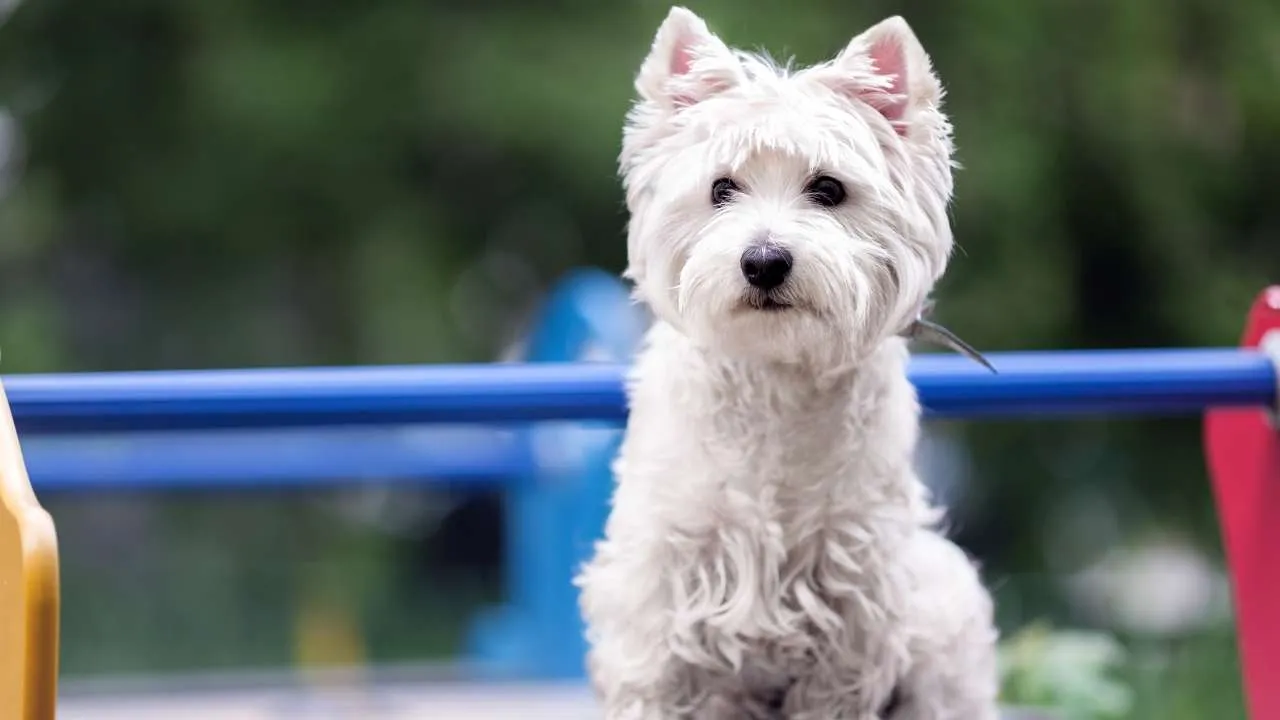
West Highland White Terrier is as lively as it is charming. These small dogs are known for their bold personalities and their love for barking at anything that catches their attention. Their signature white coat might make them look cute and cuddly, but they’ve got a bark that can carry across the room.
According to Purina, Westies are alert and incredibly energetic, which often leads to frequent barking. Their terrier roots give them a natural instinct to be watchful and protective. They may be small in size, but their bark has the presence of a much larger dog, and they’re never afraid to show it.
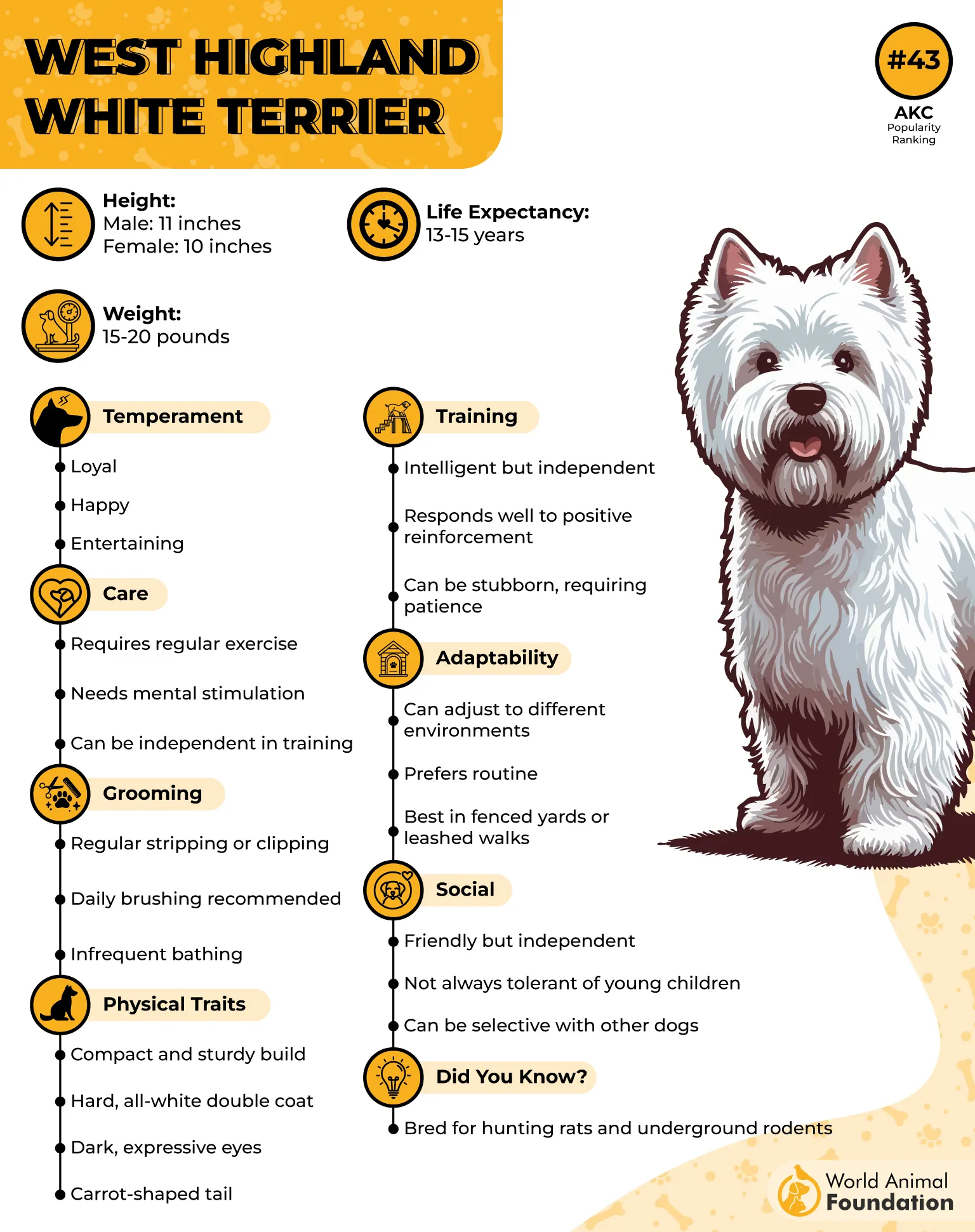
But it’s not just about barking to warn you of danger—Westies are also known for barking when they’re bored or seeking attention. These dogs thrive on interaction and engagement, so if they feel neglected, they’ll make sure to let you know. Fortunately, their intelligence makes them easy to train.
Their boldness doesn’t end with their bark. Westies are known for their confident attitude and their playful, feisty nature. They are full of spunk and have no qualms about asserting themselves in any situation. But with that confidence comes a certain stubbornness, so you’ll need to be patient and persistent when it comes to training.
Their natural watchdog instincts make them ideal for alerting you to any unfamiliar sounds or movements around the house. But that doesn’t mean they’re aggressive dogs. Instead, they’re just doing what comes naturally—keeping an eye on things and making sure their family is safe. With the right training, you can help them learn when to bark and when to stay quiet.
6. Miniature Schnauzer

These little guys are known for their feisty and confident nature, often using their voice to make their presence known. Whether it’s a passing stranger or a sudden noise in the yard, you can count on this breed to be vocal about it. Their bold, alert bark comes from their roots as watchdogs and ratters.
Orvis states that Miniature Schnauzers are protective, which makes them quick to bark at anything they deem a potential threat. Their sharp bark is often a way to assert themselves and warn their family members, which is part of what makes them such effective watchdogs. They may not be the biggest dog, but their bark sure makes them sound like they are!
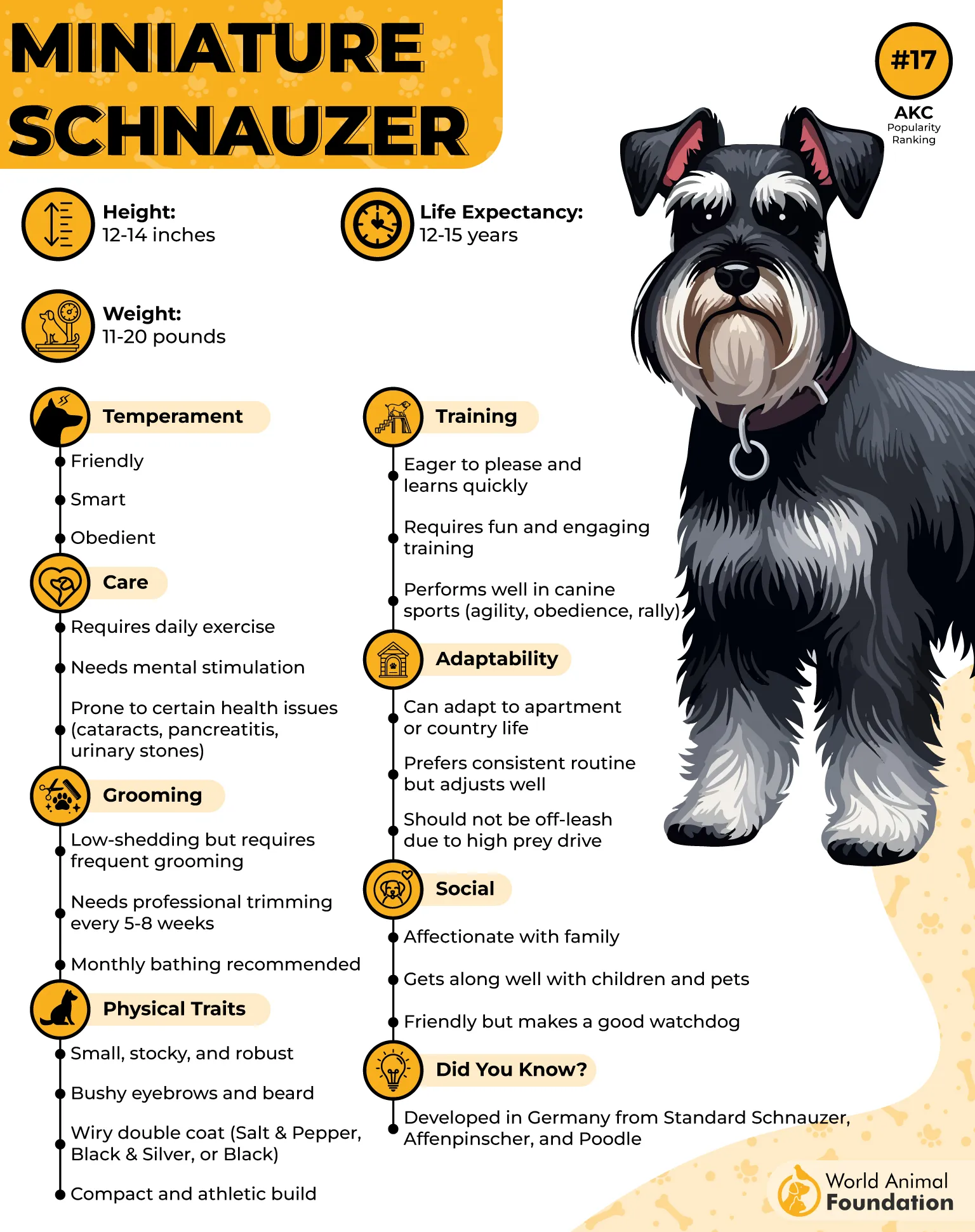
But it’s not all about barking for the sake of it—Miniature Schnauzers are also smart and intelligent, and lively which makes them excellent companions for an active household. They need plenty of mental stimulation and exercise to keep them happy, or else their barking might become more frequent.
Their natural alertness and barking tendencies make Miniature Schnauzers great family watchdogs, but they can also get along well with other pets if properly introduced. Their barking might not always be appreciated by every pet, especially other dogs, so early socialization and training are key. Still, their energetic nature and love for play make them a joy in multi-pet homes.
Interestingly, Miniature Schnauzers are known for their distinctive facial “beard” and eyebrows, which add to their quirky and endearing appearance. This unique feature, combined with their bold character, makes them stand out in a crowd. This dog breed is both vocal and charming.
7. Fox Terrier
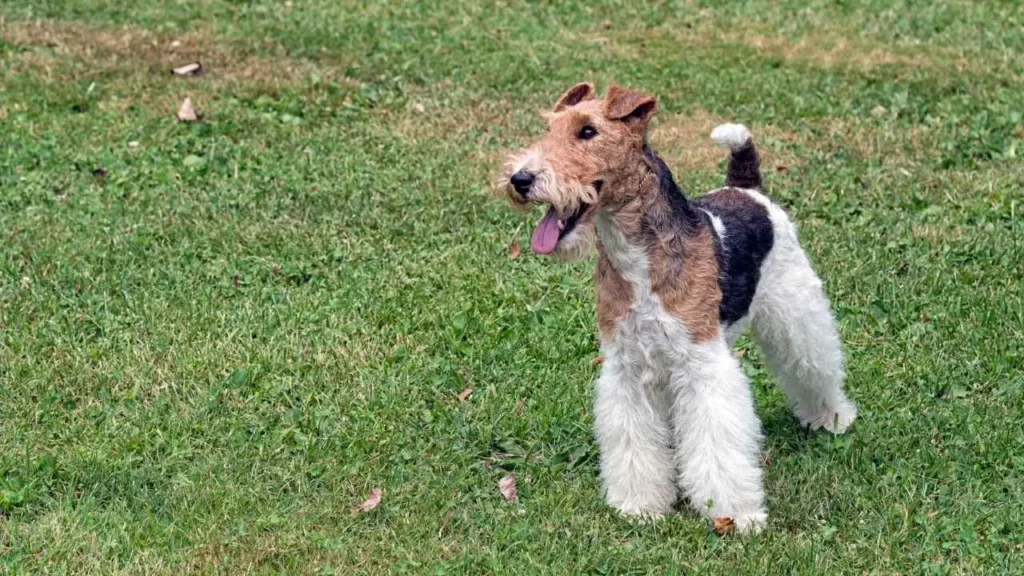
When you think of a dog that’s bursting with energy and personality, the Fox Terrier immediately comes to mind. This small yet mighty breed is known for its spirited bark and exuberant nature. Whether they’re trying to get your attention, alerting you to a visitor, or simply expressing excitement, the Fox Terrier’s bark is a trademark of their lively character.
Originally bred for hunting, Fox Terriers have a sharp, intense bark that is tied to their history as ratters and hunters. They’re quick to respond to anything they perceive as interesting or unusual, and their bark is their way of investigating or asserting their presence.
But don’t think it’s all about barking—Fox Terriers are highly intelligent and require mental stimulation to keep them happy. Without enough to do, they can get a bit noisy, as their natural curiosity and drive to explore will lead them to “speak up” when they’re feeling bored. Providing interactive toys, training, and regular exercise is key to keeping their barking under control.
Their personality matches their bark—Fox Terriers are energetic, feisty, and fearless, says PDSA. They won’t hesitate to take on challenges or explore new environments, and their loud bark often comes with a wagging tail as a sign of excitement. These dogs love being the center of attention and thrive on positive interaction.
Fox Terriers have big hearts and are always up for an adventure. Their enthusiasm makes them wonderful companions for those who enjoy an active lifestyle, as they’ll happily join in on hikes, runs, or games of fetch. They also do well in homes with children, thanks to their playful and affectionate nature.
8. Australian Terrier
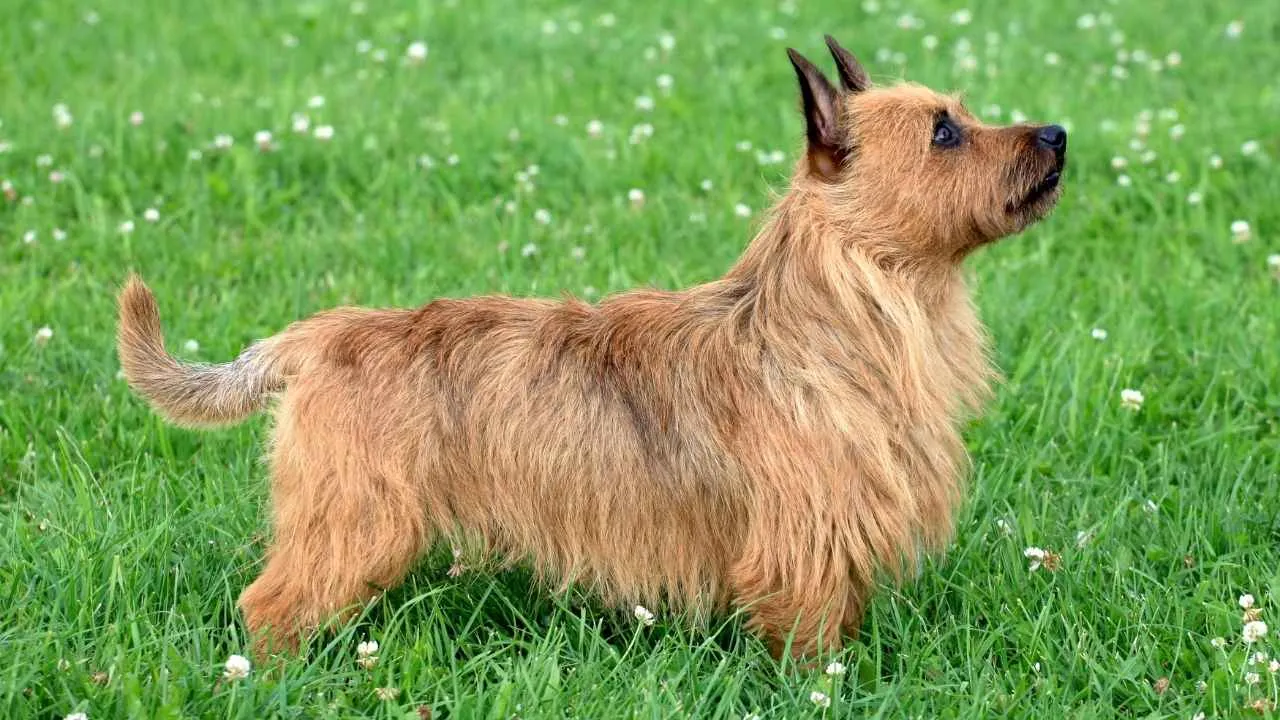
This little dog has a big, bold personality, and it’s not afraid to show it! Known for their feisty nature and confident attitude, these dogs aren’t shy when it comes to using their bark to communicate. Whether they’re alerting you to a visitor or protecting their home, their distinctive bark packs a punch. With their loud, sharp bark, Australian Terriers act like they’re much larger than their small stature would suggest.
Australian Terriers have a strong sense of territoriality, and they’re quick to bark at anything that seems out of place. Whether it’s an unfamiliar sound or a passerby, you can count on these dogs to let you know! Their bark is one of the key traits that make them such effective watchdogs.
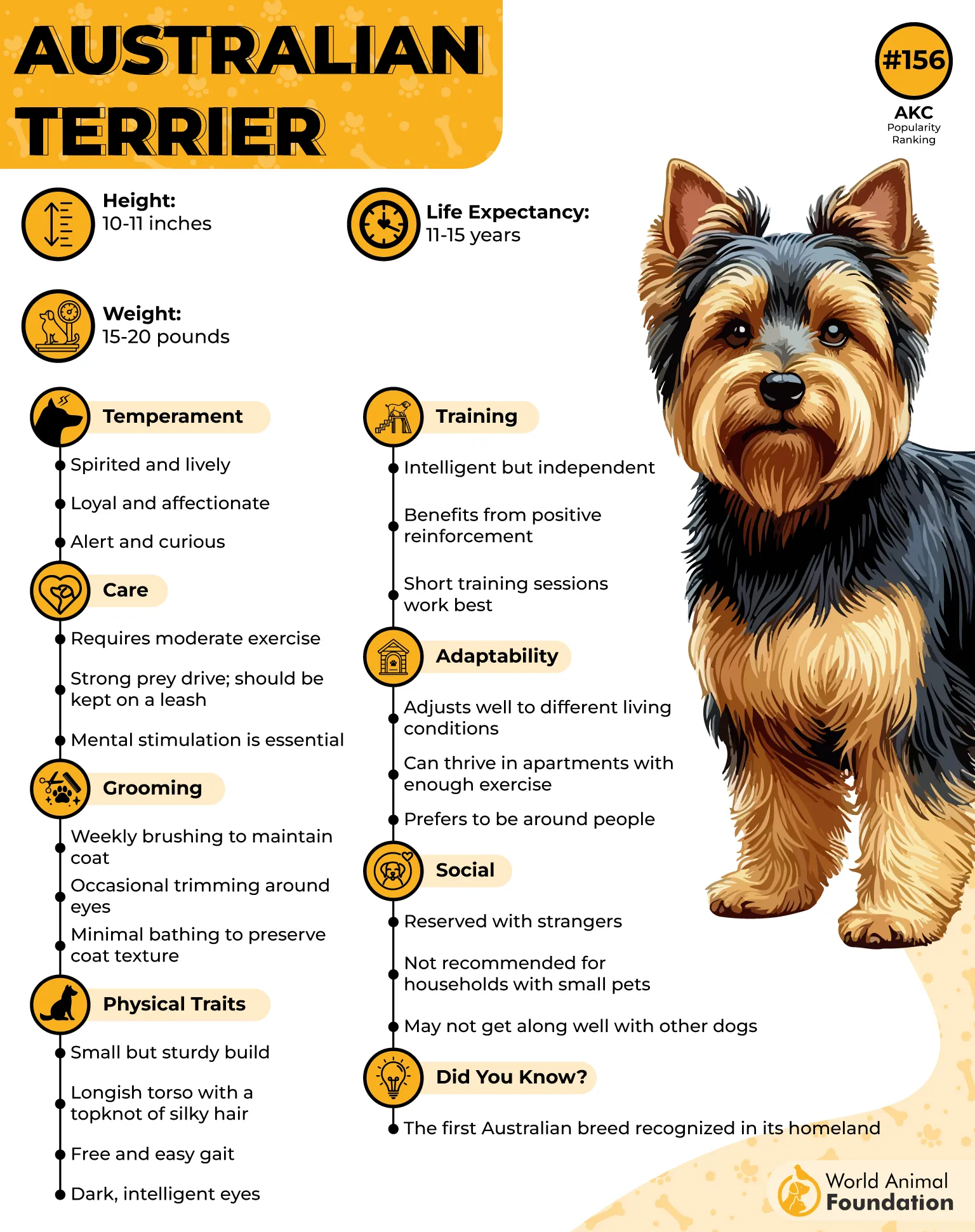
As small as they are, Australian Terriers have a lot of confidence, says WebMD. They tend to be fearless and can sometimes have an attitude of “small dog, big personality.” They love to be involved in everything that’s going on around them, and their bark often reflects this curiosity. These dogs are also quite affectionate with their families.
They enjoy exploring their surroundings and will happily join in on outdoor activities like walks and hikes. With their boundless energy and curiosity, they’re perfect for active families or individuals who love to get outside and explore. However, their independent streak means they don’t always listen to commands right away, so consistent training and firm leadership are essential.
Their shaggy, wiry coat adds to their charming, distinctive appearance, and it’s one of the things that makes them stand out in a crowd. This breed’s grooming needs are a bit higher than some other small dogs, as their coat requires regular brushing and occasional hand-stripping to maintain its texture.
9. Cairn Terrier
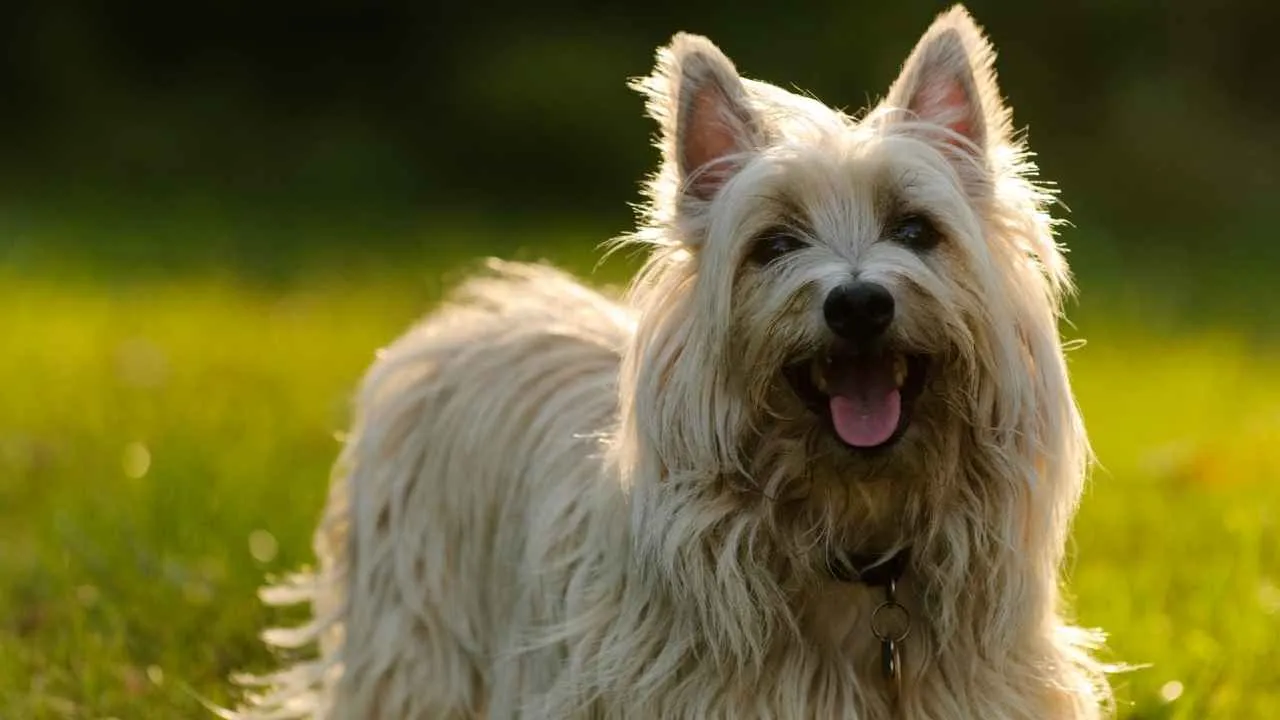
If you’re looking for a small dog with a big heart and even bigger bark, the Cairn Terrier is the one! Known for their spirited nature, these little dogs don’t hesitate to use their bark to express themselves. Despite their small size, they have a vocal presence that can sometimes surprise you!
Bred as hunting dogs in the Scottish Highlands, Cairn Terriers are naturally curious and alert, according to AKC. Their barking is often tied to their watchdog instincts, as they were once tasked with alerting their owners to potential threats. While their bark might be loud and attention-grabbing, it’s a sign of their intelligence and natural protective instincts.
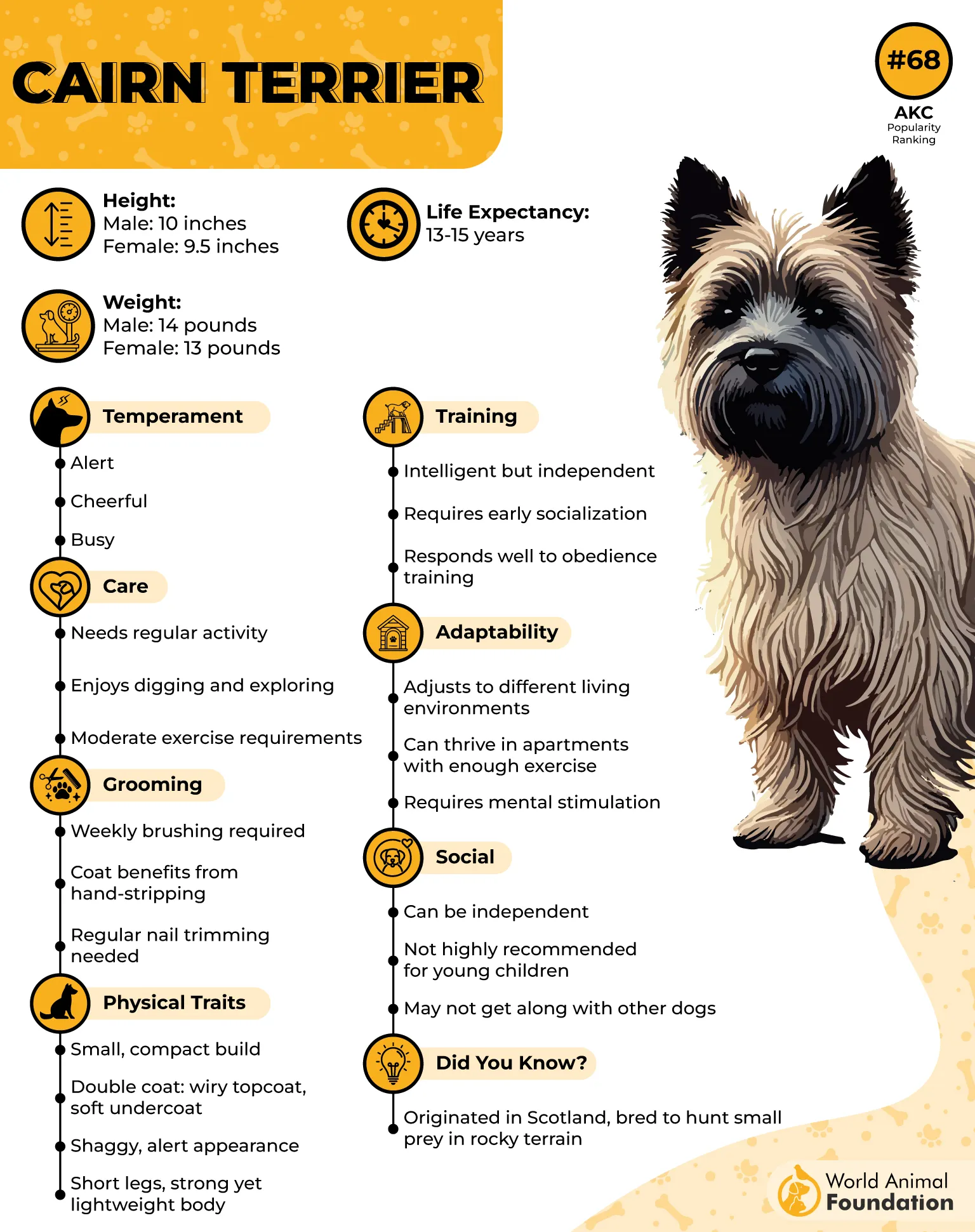
Cairn Terriers are also known for their love of exploration. Their energetic and playful personality means they enjoy a good adventure. Their inquisitive nature leads them to “speak up” when they encounter something new, and that bark is often their way of trying to understand the world around them.
Training is essential for this breed, as their independent streak and intelligence can sometimes make them a bit stubborn. If you don’t provide them with enough mental stimulation and training, their barking can become excessive. However, with consistency and positive reinforcement, Cairn Terriers are quick learners and will respond well to commands.
Their wiry coat, which comes in a variety of colors, adds to their distinctive and charming appearance. While grooming can be a bit more involved than some other breeds, it’s part of what makes them so adorable. Regular brushing and occasional hand-stripping will keep their coat in top condition.
Conclusion
In the world of tiny, fun-loving pups, barking micro dog breeds stand out with their vibrant personalities and strong desire to communicate. These little dogs—including the Yorkshire terrier, shih tzu, maltese, and Cavalier King Charles spaniel—may be small breeds, but their barking habits pack a punch. Dogs bark for many reasons: to express excitement, to alert owners of strangers, or out of separation anxiety. Many of these small terriers were originally bred as excellent watchdogs or for hunting, so their alert, vocal, and sometimes loud nature is deeply rooted in their breed history.
While some dogs are prone to excessive barking, with proper training, positive reinforcement (like treats), and early socialization, these pups can be trained to manage their behavior effectively. Breeds like the Yorkie, Australian terrier, and pug may have a high-pitched bark and energetic streak, but they are also known for being affectionate, loyal, and great with kids, other dogs, and even other animals. Although barking can be a concern in apartment settings or homes with limited space, a quiet, well-trained micro dog becomes a great companion, especially for those who prefer active, alert, and cheerful pets that add life to any household.
For those looking for a quieter alternative, the basenji is a unique, almost barkless dog that uses other vocalizations instead of barking. Whether you’re rescuing from shelters, seeking a companion through rescue organizations, or getting a pup from a reputable breeder, understanding your canine’s energy, intelligence, and lifestyle needs is key. Micro dog breeds may be small, but they offer wonderful companionship, loads of love, and big personalities in tiny packages.


